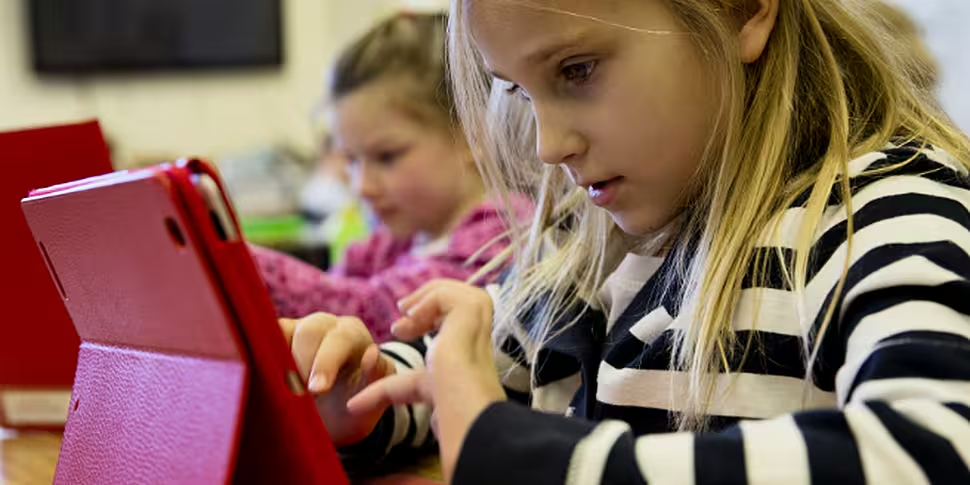As children return to school this year, many of them will find their bag considerably lighter, as schools across the country turn towards tablet computers as the future of learning.
There are clear advantages to using such technology in the classroom. Educational apps give a greater variety in learning than books can afford, and provide a more interactive approach which can incorporate images, video and games as well as text.
In addition, familiarising children with technology they will likely be using for most of their employed life seems like a no-brainer.
The Professional Development Service for Teachers highlights the many advantages of using tablets in the classroom, which it says offer “the potential for a new and exciting era in education.”
But by rushing headlong into this ‘new era,’ are we ignoring many of the fundamental principles which underlie a strong education?
“By using iPads, we’re stepping into something without having done the research,” says Henry Martin, principal of the Kilkenny Steiner School in Callan, which subscribes to the Waldorf method of education.
Based on the philosophy of Austrian philosopher Rudolph Steiner, the Waldorf method favours an informal approach to early education, engaging children in a wide variety of physical and mental activities.
Martin admits there are many positives to technology use in classrooms, but that we should not be so quick to rush children away from alternative methods of learning:
“The aim is for young children to have a rich range [of learning experiences] - to climb trees and get their hands dirty. To have an iPad is to put a layer between you and the world with no touch or texture.”
Surprisingly, some of the biggest proponents of the Waldorf model sit on the executive boards of Silicon Valley’s biggest tech corporations.
When former Apple CEO Steve Jobs was asked whether his children loved the iPad, he replied: “They haven’t used it. We limit how much technology our kids use at home.”
Jobs’ view was not atypical among his peers, many of whom send their children to prestigious Californian schools which actively prevent children from using technology until they reach what they deem to be an appropriate age.
Currently there are 1,041 recognised Waldorf schools in 62 countries worldwide, with four schools in Ireland - two in Clare, one in Kilkenny and one in Kildare. Both Clare schools are officially recognised and state-funded, and so run a hybrid curriculum which meets standards set by the Department of Education.
Martin gives an example of how, when learning letters of the alphabet, a child would learn a story for each letter. They might also make pictures with the letter, make its shape in dough and eat it.
There is a focus on using all a child’s senses, and developing movement. He says the use of technology can be restrictive – children do not develop the same fine motor skills from typing as they do from handwriting and knitting, both of which are emphasized in the Kilkenny school’s curriculum.
However, the principal is keen to stress that Waldorf adherents are “not Luddites,” and IT skills enter the curriculum between the ages of 12 and 14. Use of the internet is near unavoidable, especially when it comes to researching projects.
He also worries about the homogenisation of education, and the “tendency for an iPad to take the place of a teacher, each of whom teaches in their own individual way,”
“Often, one learns more from the teachers themselves and the iPad comes between this.”
He was hopeful that education reform promised in the 2010 election might take some cues from the Waldorf approach – there are similarities with the highly-successful Finnish model, where children do not begin schooling until the age of seven – but acknowledges that the Department of Education is “slow to change.”
Skepticism about the tech-first approach to education is not limited to alternative schools.
Dr Tom Butler, senior lecturer in business information systems at University College Cork, criticised the approach in an article for The Sunday Times:
"Many rigorous studies on computer use in education... indicate that computer applications develop narrow, non-transferable, cognitive and/or motor skills in children at the expense of more important reading and mathematical skills.”
Studies on adults have found that technology dependency can reduce attention span, information retention, emotional welfare and even produce fundamental changes in human cognition.
As US technology writer Nicholas Carr explained in his book The Shallows: What the Internet is Doing to our Brains, computers are not simply a tool we can use for convenience, but a powerful technological force which is fundamentally changing who we are and how we behave.
“The computer screen bulldozes our doubts with its bounties and convenience. It is so much our servant that it would seem churlish to notice that it is also our master,” he writes.
With Ireland’s economy heavily reliant on multinational technology companies, the call for computer skills in early education has been clear. A poll conducted last year found one-third of Irish parents believed coding was more important than the Irish language.
But should we be more hesitant to introduce tablets and other technology into education earlier and earlier, and instead consider shielding children’s developing minds and personalities from the always-plugged-in hum of the modern world?
“Parents will always want what’s best for their children,” says Martin, but they are “afraid to take risks.”
We are continually reminded of the risks of letting our economy fall behind by not prioritising IT in early education, but the real risk may be stunting our children’s development away from the computer screen.









